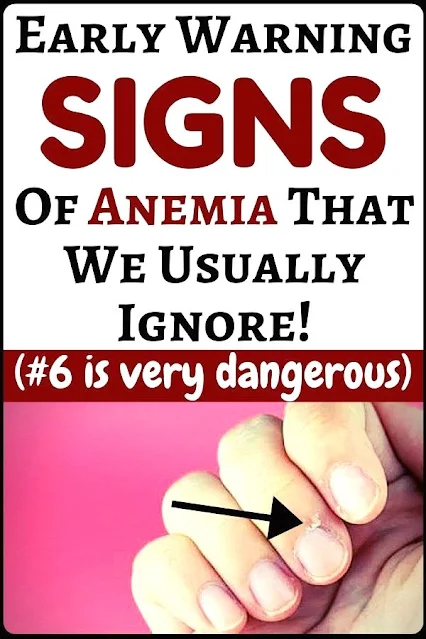Have you ever felt weak, tired, or dizzy even after a good night's sleep? If yes, you may be experiencing the early signs of anemia. Anemia is a condition that affects millions of people worldwide and is caused by a lack of red blood cells or hemoglobin in the body. Hemoglobin is responsible for carrying oxygen to your body's tissues, and a shortage of it can lead to fatigue, weakness, and other complications. Therefore, recognizing the early warning signs of anemia is essential to receive prompt medical attention and start the appropriate treatment.
Anemia can affect anyone, but it's more common in women, older adults, and people with chronic diseases. Poor nutrition, pregnancy, blood loss, and certain medications can also contribute to anemia. If left untreated, anemia can lead to severe complications such as heart problems, organ damage, and even death. Therefore, it's crucial to recognize the early warning signs and seek medical help promptly.
In this article, we will discuss the early warning signs of anemia that you should not ignore. We will also cover the causes of anemia and the treatment options available. By the end of this article, you will have a better understanding of anemia and how to recognize the signs and symptoms.
Here are some early warning signs of anemia that you should not ignore:
Fatigue - One of the most common symptoms of anemia is fatigue. You may feel tired and weak even after getting enough rest. This is because your body is not getting enough oxygen due to the lack of red blood cells.
Pale Skin - Anemia can cause your skin to become pale or yellowish. This is because of the lack of hemoglobin, which gives your blood its red color. Your skin may also appear to be cold or clammy to the touch.
Shortness of Breath - If you feel out of breath or have difficulty breathing, it may be a sign of anemia. This is because your body is not getting enough oxygen, which can lead to shortness of breath or a rapid heartbeat.
Dizziness - Anemia can cause dizziness, lightheadedness, or fainting. This is because your brain is not getting enough oxygen-rich blood.
Headaches - Headaches are a common symptom of anemia, especially if they occur frequently. This is because your brain is not getting enough oxygen, which can lead to headaches and migraines.
Chest Pain - Anemia can cause chest pain, especially if you have an underlying heart condition. This is because your heart is working harder to pump oxygen-rich blood throughout your body.
Weakness - Anemia can cause weakness and muscle fatigue. You may have difficulty lifting objects or performing everyday tasks.
If you are experiencing any of these symptoms, it's important to see a doctor. Your doctor may perform blood tests to check your hemoglobin and red blood cell levels. Treatment for anemia may include changes to your diet, iron supplements, or other medications, depending on the underlying cause.
In conclusion, anemia can be a serious condition if left untreated. If you notice any of the early warning signs of anemia, it's important to seek medical attention as soon as possible. Early diagnosis and treatment can help prevent complications and improve your overall health and well-being.

